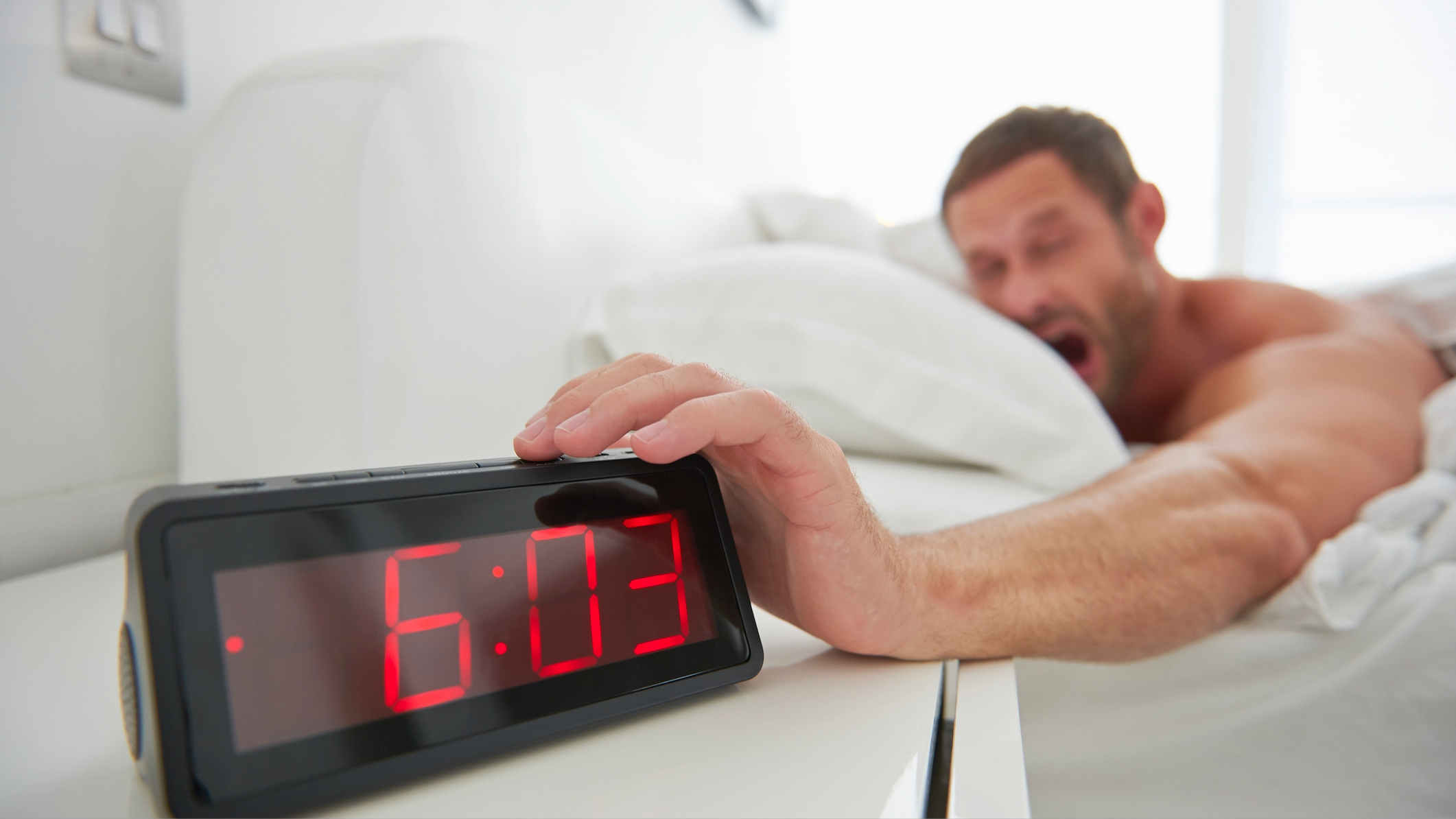Man sleeps for 30 minutes a night to 'double his life' — but does it work? A doctor responds
Daisuke Hori claims that sleeping for 30 minutes a night for the past 12 years is the secret to his success

Most of us are aware that healthy adults require between 7-9 hours sleep for optimum cognitive and physical health. However, Daisuki Hori, a Japanese entrepreneur, claims to have slept for 30-45 minutes a night for the past 12 years.
Why? In a bid to boost his overall productivity. With more hours in a day, this reckless sleep hack is the secret to his success, he claims. However, sleeping for just 30-45 minutes per night flies in the face of expert advice and sleep studies, which link poor sleep to poor cognitive function and physical health.
For Hori, his claims that being an 'ultra short sleeper' has been so successful that he's now on a quest to teach others to do the same. But is it safe? To find out if it's ever possible to survive (and thrive) on such minimal sleep and to explore the long term health consequences of severe sleep deprivation, we speak to a doctor of sleep medicine and certified sleep coach.
What is Daisuki Hori’s sleep schedule?
Daisuki Hori relies on a mix of exercise and caffeine to prevent drowsiness throughout the day. He claims he has trained his body and mind to function on just 30-45 minutes of sleep per night for 12 years, effectively doubling his life expectancy because of the extra time in a day he has created.
For Hori, he claims that it’s been nothing but a success. He states that he never feels tired, and he has seen an increase in his productivity, as both a busy father and an entrepreneur. So much so that he’s even founded the Short Sleepers Training Association, where he’s taught over 2,000 people to become ‘ultra-short sleepers’.
Hori claims that some people can benefit more from ‘high-quality sleep than long sleep’. While quality sleep is essential, most doctors and sleep experts would argue that 30 minutes isn’t enough time for quality sleep. And while there are many TikTok sleep hacks that might catch your eye, this seems more extreme than most.
A post shared by 堀大輔 (@hori.gahaku)
A photo posted by on
How much sleep do humans need?
Every human is different, but healthy adults require between 7-9 hours of sleep every night for their cognitive function and physical health. Without this, sleep deprivation effects can start to kick in.
Dr Chelsea Perry, owner of Sleep Solutions and a member of the American Academy of Sleep Medicine and the American Academy of Dental Sleep Medicine, says “The National Sleep Foundation and the CDC advocate for 7-9 hours of sleep for adults.”
Get instant access to breaking news, the hottest reviews, great deals and helpful tips.
"'There’s little scientific support suggesting that most people can thrive on such limited sleep without suffering negative consequences," she adds.

What are the health consequences of 30 minutes of sleep per night?
If you’re considering trying out this new method of sleep, you need to be aware of the potential long-term and short-term effects.
“Chronic sleep deprivation is associated with weakened immunity, cardiovascular issues, cognitive decline, and mood disorders like anxiety and depression," says Dr Perry. "There's also the concern that insufficient sleep affects memory consolidation, emotional regulation, and overall physical healing.”
While Hori claims to have ‘doubled his life expectancy’, Jill Zwarensteyn, a certified sleep science coach, argues the opposite, saying severe sleep deprivation can lead to “his body losing the ability to properly rest and restore itself, which could lead to many ailments and degenerative health issues at a younger age”.
Is sleeping for 30 minutes a night even possible?
Before we tackle whether it's possible to sleep for just 30 minutes per night, we need to question just how true this statement is. However, Hori did appear on a Japanese reality show that documented his life for 3 days, in which producers saw him sleep for 26 minutes and wake up refreshed.
Dr Perry says his ability to sleep so little and still function could be “a combination of his specific physiology, strict adherence to high-quality sleep techniques, and perhaps the use of other strategies like caffeine or physical activity to stave off drowsiness.”
It’s also important to note that Hori is a trained body builder, recently taking part in the ‘Best Body Japan’ competition, so he is in peak physical health.
“His body might have adapted over time, but it doesn't mean it's a safe or healthy practice for everyone," continues Dr Perry. "Personally, I think it's a risky experiment; while it's intriguing, it’s likely more of an exception rather than a model that most people should follow.”
A post shared by 堀大輔 (@hori.gahaku)
A photo posted by on
Should you try it? The bottom line
No. There’s no doubt that Hori’s dedication to exercise and physical health contributes to his ability to sleep so little. So, if you have an existing health condition, are overweight, or experience poor mental health, trying this nighttime routine could have seriously dangerous, and even fatal, results.
Dr Perry suggests Hori may even have “a rare genetic disposition or has trained his body in a unique way to adapt to such minimal sleep.”
“Studies show that a small percentage of people, known as natural short sleepers, can function well with less than six hours of sleep without apparent negative effects," says Dr Perry. "However, this is rare, and for the majority, attempting to emulate Hori’s routine could be harmful.”
Ultimately, the bottom line is that it’s safest not to try something so extreme. If you want to free up more time during the day and are seeking to sleep less, then focus on the quality of your sleep. This can include reconsidering the time you go to bed, your screen time, and whether you have the best mattress for your sleep needs.

Lauren is an experienced writer and editor in the health and lifestyle industry and has led many campaigns and projects that deliver news, advice, and research on all things sleep. As the Sleep Features Editor for Tom’s Guide, Lauren writes, commissions and edits sleep and mattress content, from in-depth how-tos in sleep and mattress health to interviews with doctors and neuroscientists on the latest news in sleep. Lauren regularly tests new sleep tech and accessories to evaluate their effectiveness for getting good quality sleep and easing specific sleep struggles like nighttime anxiety. Alongside this, Lauren reports on the best mattress brands out there, like Helix, Saatva, and DreamCloud, helping readers find the right mattress for them and the best deals on them.
